
Article
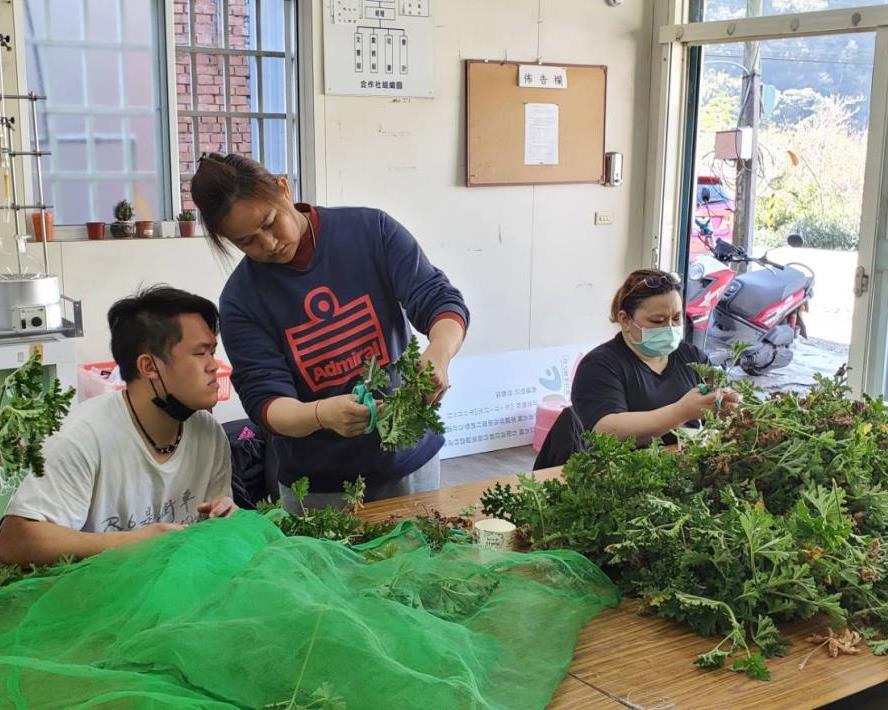
From Planting to Experience: A One-stop Industry of Naroherbs

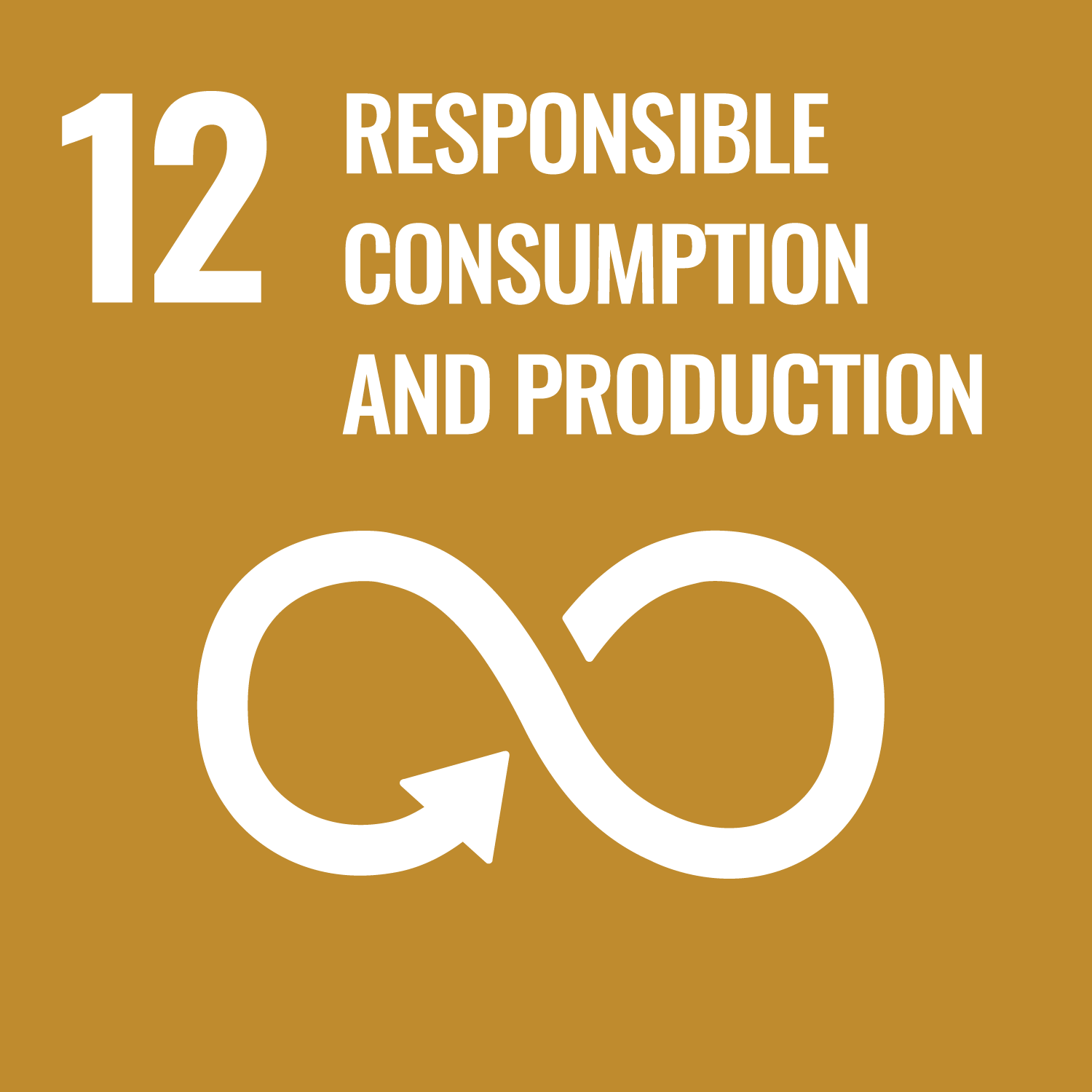

There are many scenic spots along County Highway 120. From Route 3 to Neiwan and Jianshi Township in Hsinchu County, continue along the highway for about 10 km to reach the Naro Tribe in Jianshi Township. The Naro Tribe is divided into two major areas, "Persimmon Hill" and "Naraw," along the Naraw River. During the Japanese Colonial Rule Period, because of the many wild persimmons growing in this area, it was called "Lalu" in the Atayal language, which became the name of the place. After the Nationalist government moved to Taiwan, it was changed to "Naraw," which became the original name of Naro.
In the Naro River Plateau, which is about 600 meters above sea level, the terraced fields in the mountainous area used to grow crops such as rice, sweet persimmon, and cabbage, but each area was only about 0.2 to 0.5 acres, which did not have much economic benefit. In the past 20 years, some operators have utilized the fields' landscape to develop leisure agriculture tourism. However, Hsinchu County Naro Agricultural Product Marketing Cooperative has taken advantage of the pure water quality from Dabajian Mountain and the seasonal climate of the mountains to grow herbs and develop new economic crops.
The Returning Youths Take Over and Rise the Tertiary Industry Again
The cooperative launched in 2014 and was the former Specialty Crops Production and Marketing Group of Jianshi Township, Hsinchu County, which focused on planting herbs." In the beginning, we simply want the tribal farmers to grow herbs for a good income. Later on, it developed tourism and other marketing businesses. However, the purpose of the Production and Marketing Group should be simple, so the cooperative was established separately," said the cooperative's manager, Mr. Fan Shuo-wen, who returned to his hometown in 2016. In short, the cooperative is responsible for taking orders, the farmers plant herbs, and the cooperative promises the quantity of herbs purchased and then processes them into essential oil and hydrosol to sell on the market. The cooperative currently mainly operates under the brand "Naroherbs."
About 20 years ago, Mr. Fan Shuo-wen's mother, Mrs. Wu Xiu-mei, joined the Naro Tribe to plant herbs through her work as an aromatherapist. She received support from the current chairman of the cooperative, Mr. Chang Song-xiong, who provided the land for cultivation free of charge and led the neighboring farmers to switch to planting herbs. Compared to other crops, the natural organic herbs from "Naroherbs" require less care and fertilizer, which not only reduces environmental damage but also increases economic value.
"The initial position of the cooperative is the raw material supplier. Most of our clients are factories, distributors, and even exporters. Otherwise, our strength is producing hydrosol of the second industry so we are better at product development and the preservation of the hydrosol. We utilize the local spring water with high mineral ingredients to make our products of better quality." The cooperative has been rooted in Naro for 20 years. Through the hard work of the second generation, it is stepping into the sixth industrialization.
"Fewer operators that do a one-stop model of the herb industry. Most of them are tourist factories and farms, and few do plant, processing, and experience tours in a row," analyzed the special operation model by the manager of the Cooperative, Mr. Fan Shuo-wen. Naroherbs has formed a "one-step industry" from the corps production of the first industry, the manufacture of the second industry, and the advantageous combination of the tertiary industry. In 2020, when it took the Fuxing Coal Mine Park, it had more space steps to the fourth stage, "Experience Economy." This includes activities such as cosmetics DIY and herb garden guided tours, and it has expanded to seedling teaching. As well as herb-flavored aboriginal cuisine and was even packaged as a full-day (about 5 hours) package tour.
Adequately Empowering Manpower and Entering into Systematic Management
Until now, Naroherbs has had 40 types of hydrosol products and has developed as a mature business. In 2018, the cooperative wanted to develop the leisure tourism business, so it applied for the "Empowering Employment Program (EEP)" from the Ministry of Labor. It has hired 46 workers during the past 6 years, and all of them are returning youth. "After the new staff joined the cooperative, they not only vibrated the cooperative but also the tribe." Mr. Fan further says that when the operation of the cooperative reaches a certain size, he hopes to introduce systematic management through the Empowering Employment Program. For example, there should be a standard process for purchasing herbs and quality control. All of these should be a systematic standard, so it is necessary to have young people who know how to use computers join the cooperative.
Furthermore, the biggest difference between the "Multi-Employment Promotion Program (MEPP)" and the "Empowering Employment Program (EEP)" is that MEPP has a budget for training fees, so the applied organizations can organize related learning courses. The knowledge of financials, list management, and marketing of the cooperative's staff is learned through the EEP training.
Mr. Fan also made a lapse because he lacked tax-related knowledge. In 2020, the cooperative received a notice from the National Taxation Bureau for more than NT$700,000 in back taxes. The reason is that although the grant income from the application program is not business income, it is still required to pay tax. "Other things are that we just know our marketing position isn't clear after we learned from the marketing class. We've learned this knowledge through EEP and then to solve them."
The biggest challenge comes from the COVID pandemic since the cooperative was launched. Before the pandemic, the main clients of the cooperative were private enterprises, which accounted for 80%. In 2020, when COVID-19 spread to Taiwan, the products ordered half a year earlier could not be exported after the export chain was suspended, resulting in huge losses. After that, Mr. Fan thought that if the cooperative wants to add brand loyalty, consumers must try the products, and it could promote online marketing. Therefore, half of the cooperative's clients are privacy enterprises, and the other half are normal customers.
In the future, the main operation will focus on the Fuxing Coal Mine Park. During its operation from 1951 to 1984, Fuxing Coal Mine was the biggest one in Jianshi Township. Despite the coal mine having been abandoned for many years, the staff cleaned up the remaining spaces, cultural relics, and equipment. Mr. Fan said, "It's very suitable to hold all kinds of trips, activities, and courses." Recently, the cooperative hosted an event that combined coal mine culture and herbal experience. Hosting events has a level of benefit for branding. The vision of Mr. Fan is to build an environmental educational park that combines the Gaga culture of Atayal (a traditional culture) with herb culture.
After the completion of the soft and hard construction of Naroherbs, it is expected to be the highlight industry of Jianshi Township that allows visitors to get closer to and experience the beauty of the herb.
The Office Website of Naroherbs
| Visual Creative Talent as Tribal Marketing Driver Born in 1986, Mr. Zhuang Hong-xian joined the cooperative in February 2023 as a project manager. He studied biotechnology at the university and worked for an advertising company for the past 10 years. After transferring to work in the cooperative, he is mainly responsible for the work of multimedia and photography. The visual image of "The Herb Mid-Autunm Festival" at this year's National Indigenous People's Cooperative Expo is from his creation. |
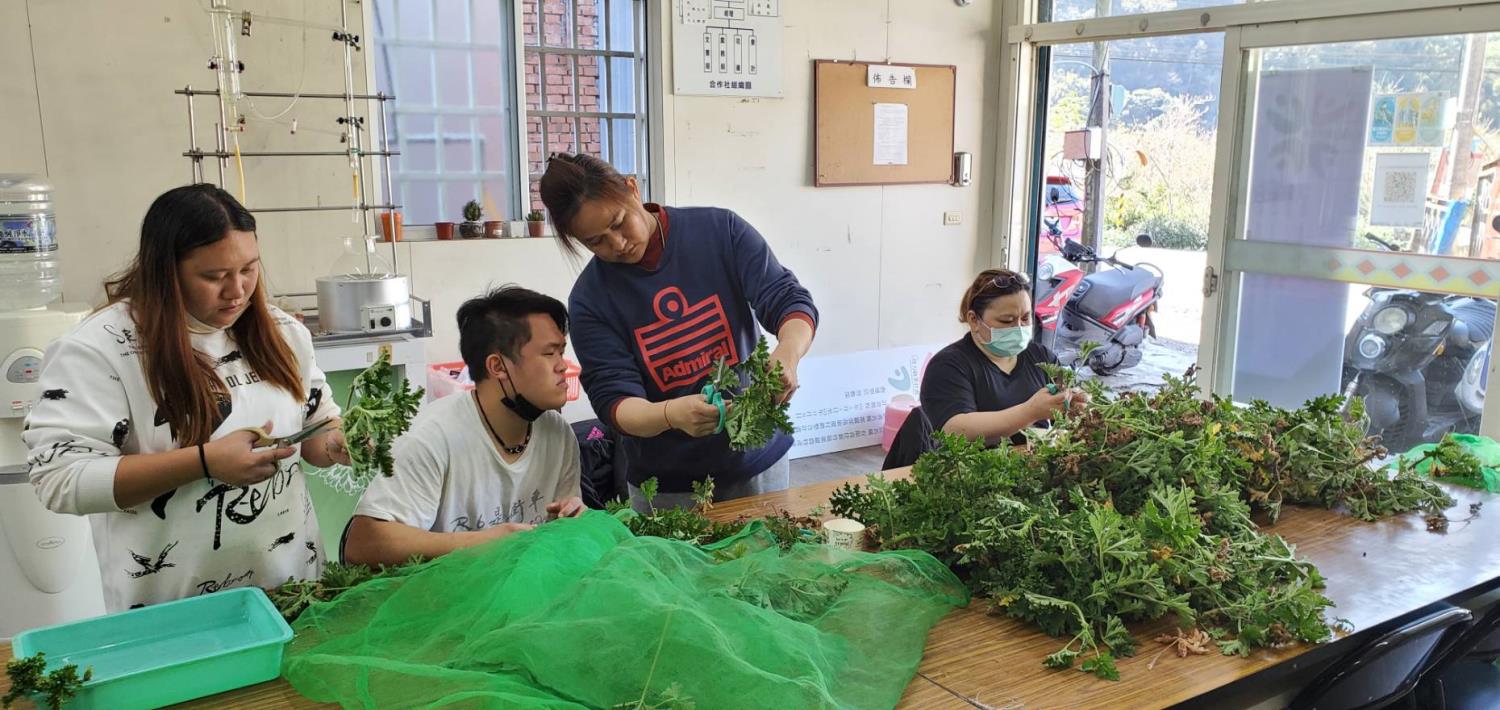
▲Naroherbs has formed a "one-step industry" from the corps production of the first industry, the manufacture of the second industry, and the advantageous combination of the tertiary industry. (Picture provided: Naro Agricultural Products Marketing Cooperative)
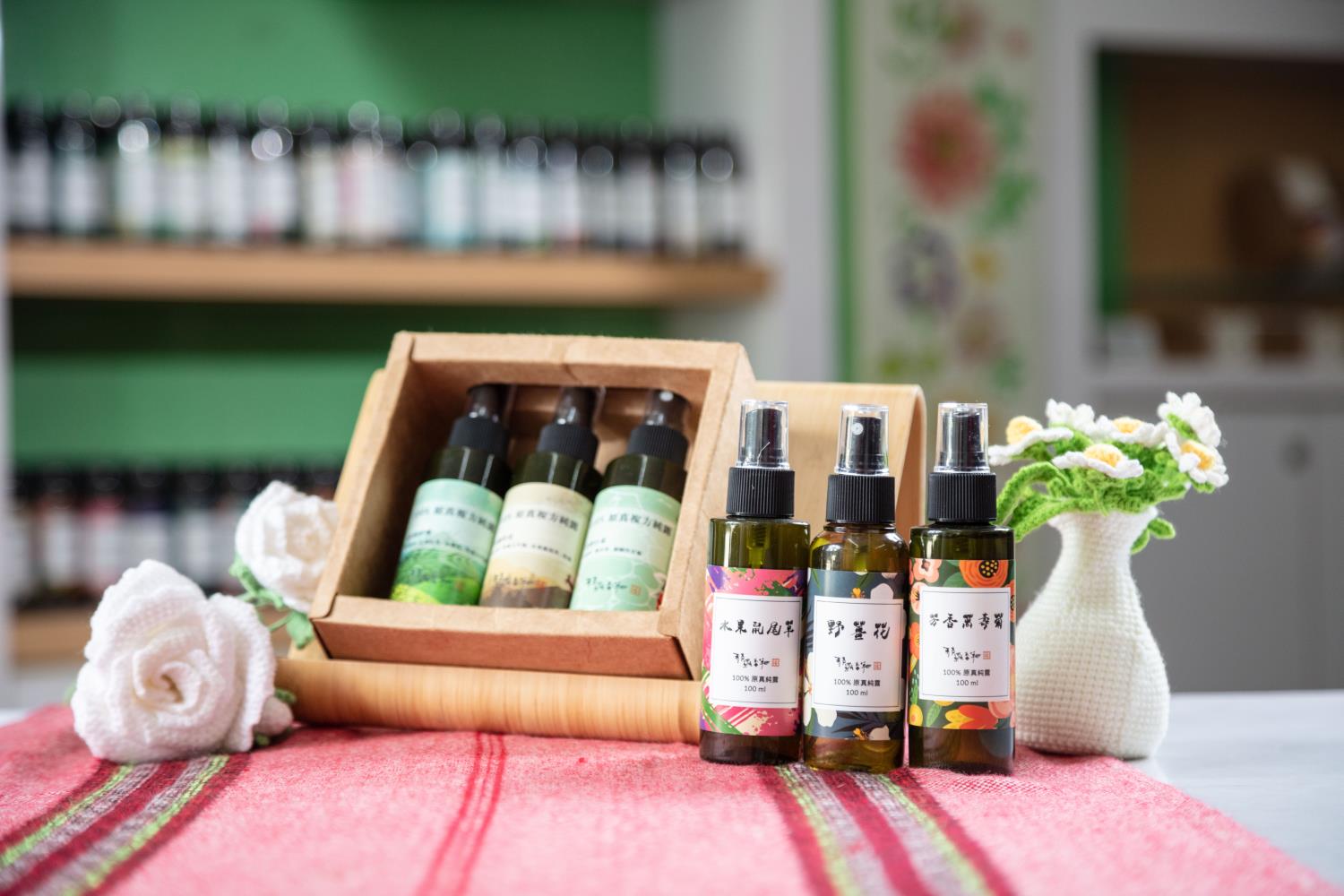
▲After 20 years of cultivation, Naroherbs has developed and has 40 varieties of hydrosol. (Photo by Lin Ying-cheng)
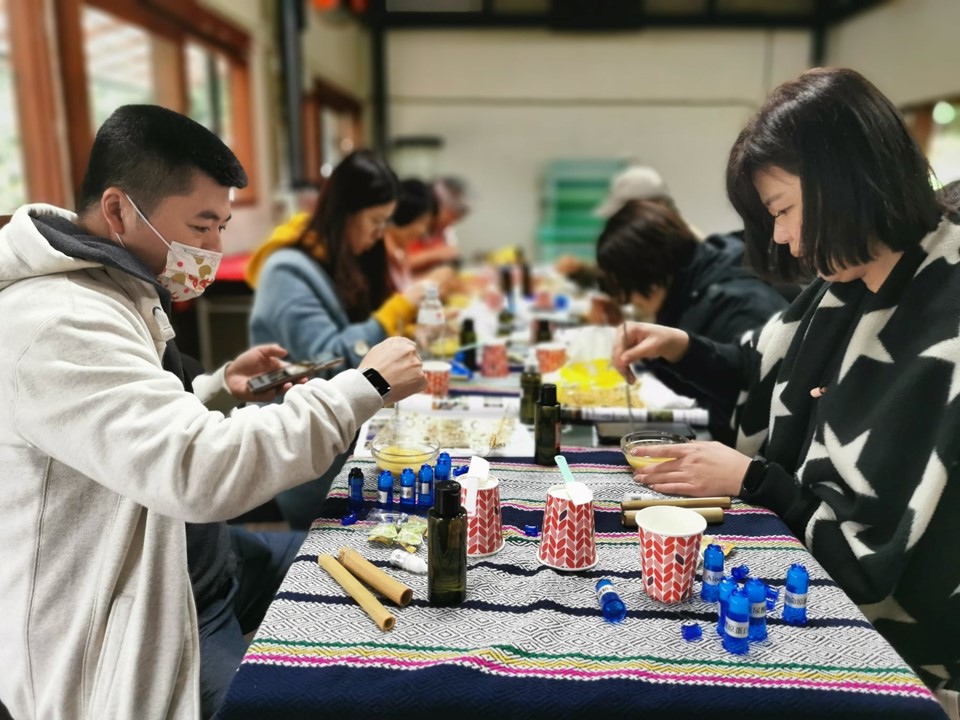
▲Visitors choose the flower flavor they prefer and make their skin care products. (Picture provided: Naro Agricultural Products Marketing Cooperative)
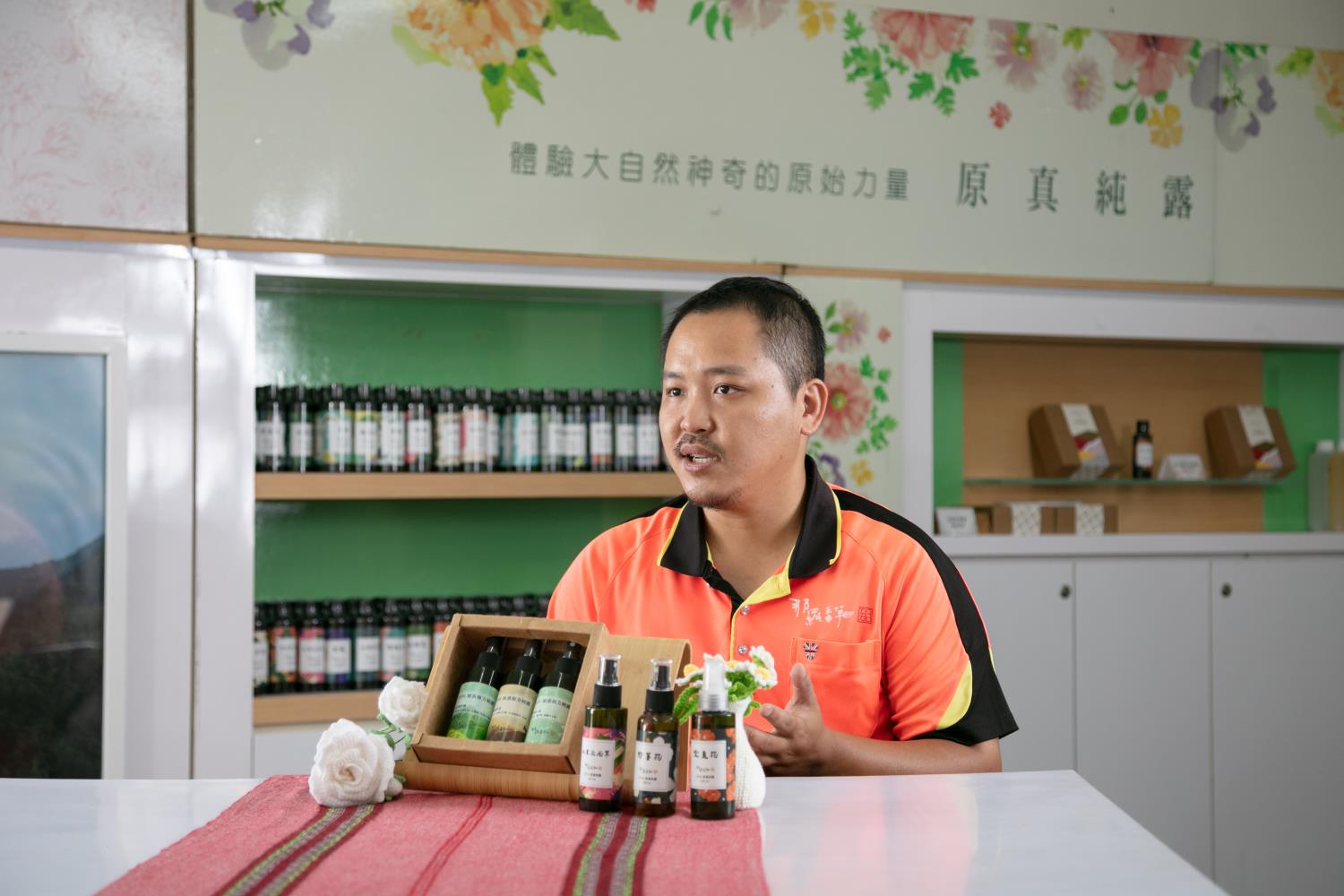
▲Mr. Fan Shuo-wen takes the cooperative's operation and steps to his dream blueprint (Photo by Lin Ying-cheng)
▲The cleaned-up Fuxing Coal Mine Park was combined with Naroherbs to be a place for holding all kinds of trips and activities.
Case Story: Empowering Employment Program
Interviewee: Hsinchu County Naro Agricultural Products Marketing Cooperative
![]()
This work is licensed under a Creative Commons Attribution-NoDerivatives 4.0 International License.
Please attribute this article to “Workforce Development Agency, Ministry of Labor.”
